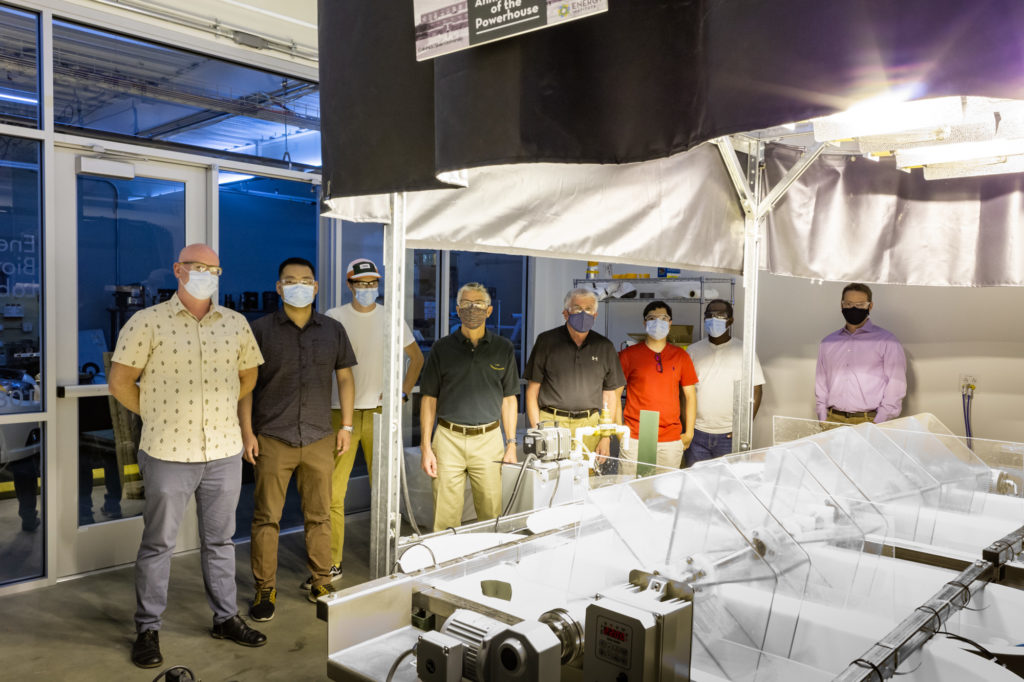
Scientists have long studied properties of algae in hopes that it could someday act as a substitute for petroleum-derived vehicle and jet fuels and contribute to global food production with its significant protein component.
Now a Colorado State University team will develop ways to grow algae crops faster.
The U.S. Department of Energy selected CSU engineers and biologists for a $3.2 million grant to engineer algae strains and improve cultivation operations to boost algae’s potential as a source of biofuels and other products. The goal of the project is to increase the rates of biomass production from algae by 20 percent.
The CSU project will be led by Professor Ken Reardon, the Jud and Pat Harper Chair of Chemical and Biological Engineering in the Walter Scott, Jr. College of Engineering.
Reardon has spent the better part of 20 years analyzing and engineering bacteria and algae for the production of biofuels and other chemicals. He even started a popular algae club for students in 2019 so undergraduates from across the university could learn about algae and how it can be used. Some club members get involved in algae research.
“Solutions toward the interconnected challenges of food, energy, and water production are increasingly becoming critical for our planet in the face of climate change,” Reardon said. “Algae could be one of the solutions to those challenges, but we still have a lot to learn about how to improve the economic and environmental sustainability of making fuels and chemicals from algae. We’re confident this project will help the field take a big step forward.”
Joining Reardon on the DOE project are:
• David Dandy, Professor and Department Head of Chemical and Biological Engineering, who will use computational tools to simulate pond dynamics treating the cells as chemical reactors that convert inorganic carbon (from CO2) to biomass;
• Graham Peers, Associate Professor of Biology, who will use genetic tools to create a new algae strain with higher growth rates; and
• Jason Quinn, Rockwell-Anderson Associate Professor of Mechanical Engineering, who will analyze the project’s economic and environmental sustainability.
CSU’s partners for this effort include Los Alamos National Laboratory for strain engineering; Arizona State University and Qualitas Health for outdoor cultivations; and Quantitative BioSciences Inc., and CSU startup OptiEnz Sensors LLC for sensor development.
DOE awarded $34 million to 11 organizations across the nation for the development of biofuels, biopower and bioproducts.
“From food waste to yard trimmings, biomass technology is converting our everyday trash into low-carbon fuel for planes and ships while cutting costs and supporting our critical transportation sector,” said Secretary of Energy Jennifer Granholm in a DOE statement. “The companies and universities leading these projects will ensure that our cutting-edge biofuel technologies reduce carbon emissions, create new jobs up and down the supply chain, and are made in America by American workers.”